
The New American Dream
Mark Whitehead became a Christian when he was nine years old, but he considered himself more like a “good churchgoer” than a genuine Christian. He had worked in industrial sales for almost thirty years, been married for twenty years, and been a father to two daughters in the Birmingham, Alabama.
Mark was living the American dream. Then, in February 2006, he woke up.
Mark had been attending The Church at Brook Hills, where a young pastor named David Platt preached a sermon entitled “The Ultimate Disconnect,” which was based on Psalm 67:1-2.
Those two verses are but a sentence long but the message “shook us in our boots,” said Mark. “Have you disconnected God’s blessings from his purposes?” David asked the congregation.
Exiting the Bubble
The question reverberated in Mark and forced him to reevaluate his life’s priorities. He embarked on a series of trips to Mexico, Ukraine, and South Sudan in the following couple of years to discover how to reconnect his blessings with God’s purposes. He sensed that he was supposed to start a ministry but the details were vague.
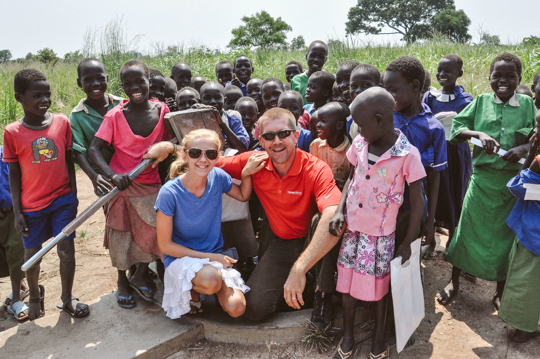
Mark was in South Sudan in April 2008 when his mission took shape: to meet material and spiritual needs in the developing world. The vision became clearer – provide access to “clean water to advance the gospel.” And that’s how Neverthirst was birthed.
“Everything’s done through the local church,” said Mark. Neverthirst has facilitated around 2,000 projects that provided roughly 300,000 people in the Central African Republic, India, South Sudan, and Cambodia.
Mark explained that local pastors apply for water projects with buy-in from the village. “We help the community identify and meet their needs with their own resources,” Mark said.
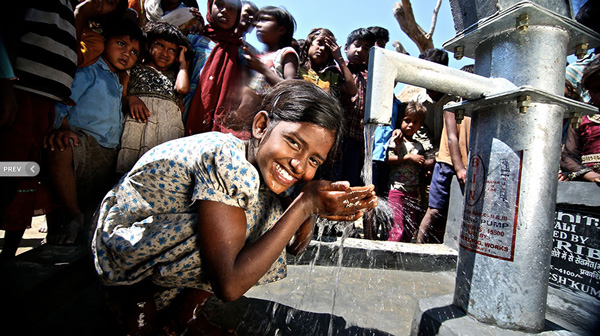
The projects commence once the village has raised a repair fund that equals around $220 (US), which is put into a savings account designated for maintenance. This is how, Mark said, Neverthirst tries to “break the dependency cycle that we exported many years ago.”
Breaking this cycle that’s been set for years isn’t easy though. “It might be months until they get the funds raised,” said Mark.
There’s a bit of a “learning curve,” for the villagers, who live in mostly agrarian settings. “They have the means and ability,” he said. “Then once they realize they can do it, it’s like their eyes are opened to new possibilities.”
In this way, Neverthirst serves as an intermediary between rural water departments, drilling companies, churches and businesses.
Neverthirst transforms communities
Iron Tribe Fitness (ITF), a fitness franchise based in Birmingham, Alabama, has teamed up with Neverthirst. The quickly expanding franchise is just as mission-oriented about cultivating healthy and fit lifestyles as Neverthirst is about spreading the gospel through greater access to clean water.
Since its inception in 2009, the charity has been an integral ITF value, so the partnership between the business and the nonprofit was only natural. With six locations in Birmingham alone, ITF leveraged their outreach and influence on Neverthirst’s behalf through starting a fundraising event called WOD for Water.
WOD for Water across the ITF network has raised hundreds of thousands of dollars. Each independently-run ITF coordinates its own WOD for Water but shares one website.
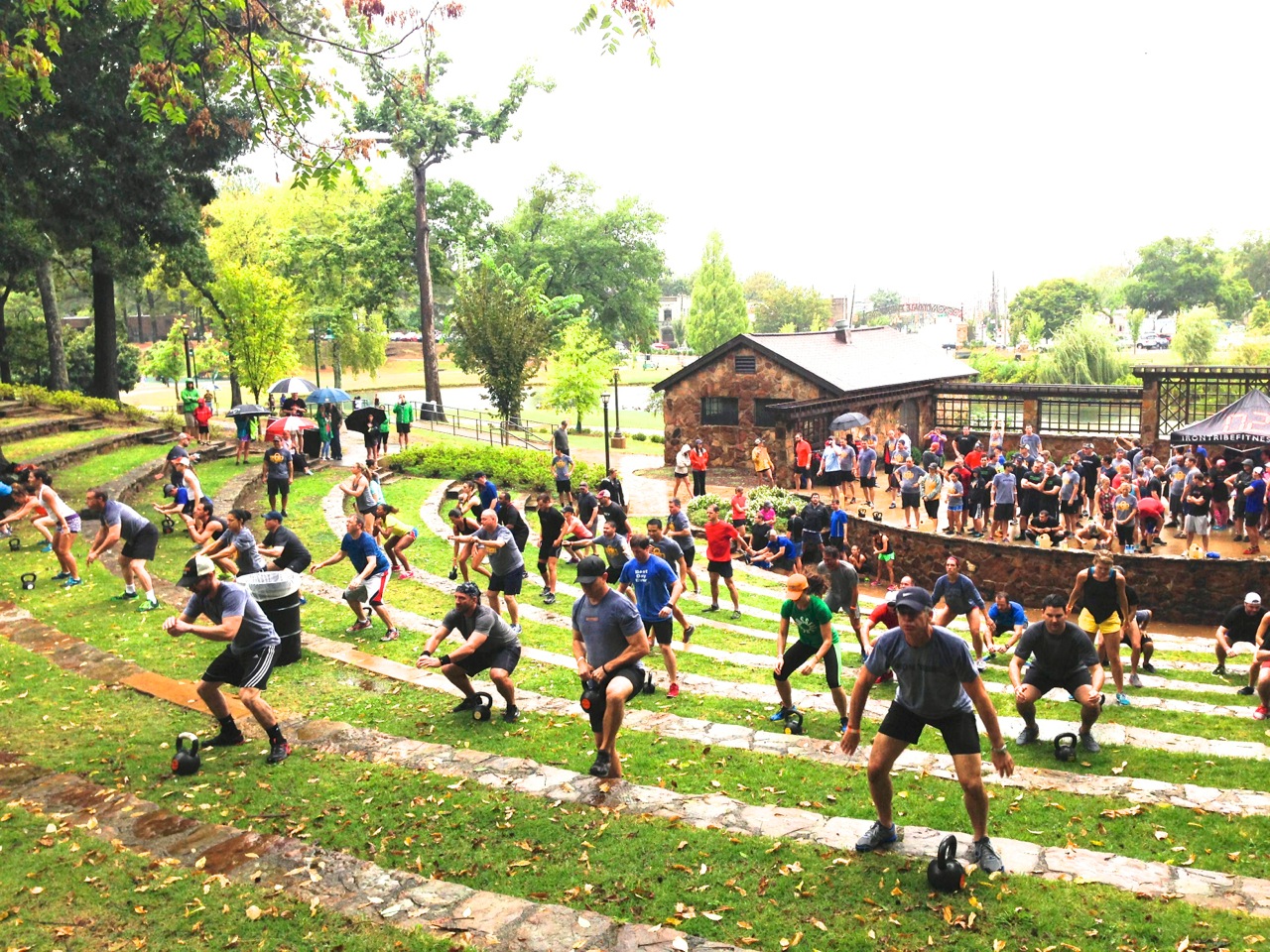
In September 2013, ITF in Birmingham held their WOD for Water in Avondale Park to accommodate the almost 200 athletes who participated. These athletes squatted and lunged along the terraced, coliseum-esque park, hoisting kettlebells and yellow jerry cans (filled with water, naturally) — all in the rain. With a matching gift of $100,000 from a few Neverthirst partners, this WOD for Water raised $207,000, which meant over eighty wells would be built in India.
ITF Nashville’s WOD for Water had athletes form teams; the team that finished their WOD the fastest were the winners. This WOD for Water raised $20,000, which went towards building eight wells in India.
ITF Knoxville held their WOD for Water even before they officially opened their doors. The registration fee of $40 gave athletes a t-shirt, other sweet swag, in addition, a fitness experience that would make a greater impact. This Tribe raised almost $2,000, which was still impressive, all things considered.

It was “like watching the stock market ticker,” said Mark of the WOD for Water website.
Having partners like ITF that are as zealous about philanthropy, who in turn advocate for Neverthirst to their tribe, made it possible to invite more people to join the mission. Also, Neverthirt’s cause gave already highly-motivated athletes the extra encouragement to complete the WOD for Water.
CauseVox is user-friendly
This year was the first time Neverthirst used CauseVox to power their WOD for Water campaign.
“It’s been great,” said Mark, who also described CauseVox as “very user-friendly.” He also commended the platform’s customer service.
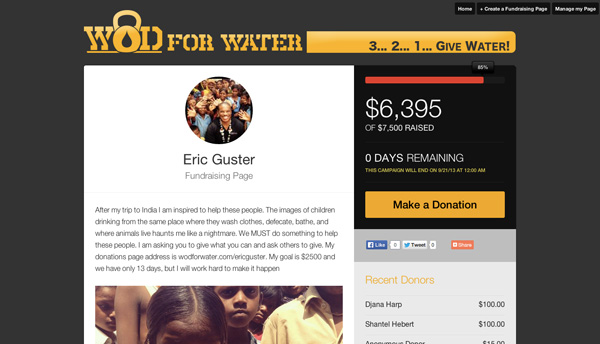
One feature that CauseVox offers that a leading payment processing platform lacks? Capturing new donor information.
Through WOD for Water events, Neverthirst was gaining more exposure, said Mark. From one event alone, there were a few hundred donors, but no way to engage them. Thanks to CauseVox, Neverthirst can now stay in touch with new donors who hopefully will become the nonprofit’s advocates.
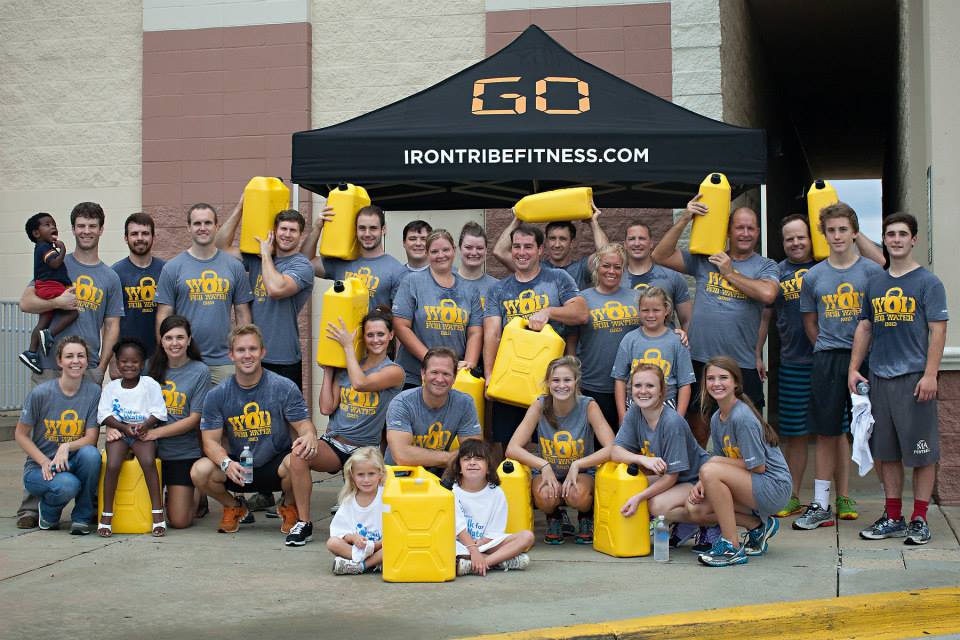
“$200,000 was a big goal,” said Mark of the past year’s fundraising goal. “Next year, maybe half a million.” He admitted it’s a lofty goal but with a growing base of support, it’s not an impossible goal. And with those funds, Neverthirst would be able to supply over 160 villages in India alone with clean water.
Since its inception in 2008, Neverthirst has grown every year, and as a result, is always raising funds, said Mark. As Neverthirst takes on more projects, the challenge has been to match their budget accordingly.
Lessons Learned
Over the years, Neverthirst has tested a few ideas, running programs, such as “Sponsor a Woman,” which sought to empower the women, and “Adopt a Village,” which sought to connect churches with communities. These concepts were great in theory but yielded good but limited results.
This kind of experimentation was still helpful; Neverthirst learned how to streamline their mission to allocate their resources better. Neverthirst’s role is clearer now: to support local churches in bringing clean water and the gospel. Mark referred to the staff as “encouragers along the journey.”
In many parts of India which Mark described as being “hostile to the gospel,” a pastor who was the village outcast is now known as “uncle,” a term of endearment, thanks to Neverthirst’s partnership. Neverthirst comes alongside these pastors to demonstrate that this gospel meets both spiritual and physical needs.
“Pastors are lifted up,” said Mark. “The church is encouraged.”
Mark gave up a “great job and great living” to lead Neverthirst on a full-time basis.
“It was scary,” he said, as he makes half of what he did from his almost thirty years in sales. “But,” he concluded, the privilege of reconnecting God’s blessings to his purposes has been worth it and “so rewarding.”




